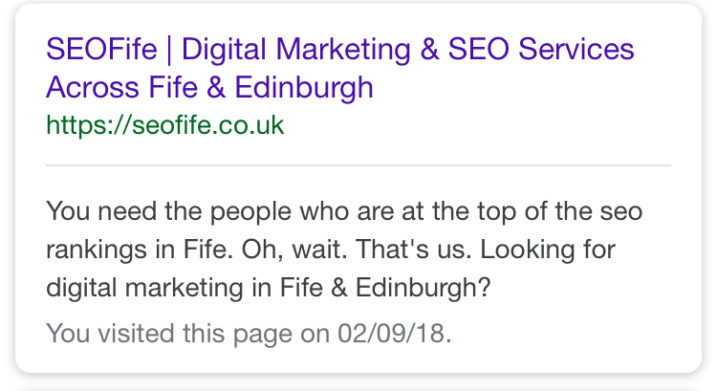SEO (Search Engine Optimization) is becoming more, and more important in business. It is easy to spot the shifting tides of consumers preferring to search the internet for services or buy online instead of visiting the high street. This means that no matter what industry your business is in, it is imperative that you have a website or social media presence. Now, while it is good to have a website- how do potential customers find you? That is where SEO comes in handy.
Part of Google’s algorithm analyses your website’s value and relevancy through the written content on the page and by tracking the way in which your visitors interact with the content. Blog posts are an important part of both your website’s Google viability and audience engagement. So here are some top-tips for building a blog post that Google & your audience will love.
Topic – Answer Questions & Think Outside The Box
In the SEO world, there are some that consider written content as the most important part of why Google ranks your website higher than another… and you need to constantly write fresh content. In part this is true. However, the way in which the website users interact with the page is by far the most important thing to consider. Search engines will look at how long users stay on the page, if they click through into another page or if they click off the page before it fully loads (this is referred to as ‘bouncing’). How long users stay on the content is often down to the topic and how well the post is written. Before anything, you must understand who your blog post is for and why they will find it valuable. Give your audience a reason to read your post and give them something really interesting. Engaging your customer is very important for SEO & your brand. If you are stuck, start by writing about questions you are often asked by your customer base – this is key information about what they may want to read about.
‘Best way to sell something: don’t sell anything. Earn the awareness, respect and trust of those who might buy’ – Rand Fishkin

Keywords
A keystone of SEO is the words that are written on the page. This written content tells search engines what the page is about, and therefore, what it should be ranking for. The second thing you should do is understand which keywords you would like to focus on. This is a combination of the topic you wish to write about, the audience you wish you to attract, and also the ‘search term’ which most people search on Google. There are some tools which help with this keyword research- I would recommend Moz (which has a free set of tools) or Ahrefs (which is generally paid for). There are millions of other tools out there.
As an example: If I researched this topic’s associated keywords and found that ‘Blog post SEO’ was the best option for me, I would then ensure that the exact (or similar) keyword phrase was included a few times in the text (say 5 or 6 times in a blog post – or roughly once every 100 words).
Long Tail Keywords
This is where things get a little complex for bloggers who are new comers to SEO. Keywords can be categorized differently depending on their search volume & keyword difficulty. The best keywords for blog posts are called ‘Long Tail Keywords’ – these are keywords which are more specific. While these keywords have less search volume, they are generally less competitive. An example would be targeting the phrase ‘SEO Company UK’. Chances are this blog post will never rank well. However, if I choose something more specific like, ‘Best SEO Company in Edinburgh’, I may have a higher chance of ranking. Targeting 5 smaller easier keywords could be better than 1 big one.
Some golden rules:
- If you put a million keyword instances in the blog post, Google will work out that you are trying to fool its system and will punish you (this is called ‘over-optimization’).
- Try to avoid using the same exact keyword/phrase for different posts. Google generally only wants to publish one of your pages for a keyword so it may get confused as to which blog post it should be showing (this is called ‘cannibalization’).
- Try and keep it natural and don’t stuff the key phrases in. The important thing is the passion behind what you are writing about.
- Ensure that these keywords are included in the big title (h1), at least once in the subtitles (h2), the text (5/6 times), and the meta title.

Title tags
<h1>- SEO 101 for writing blog posts
<h2> – Keywords
<h3> – Longtail Keywords
<h2> – Post Length
<h2> – Meta Title
Post Length
Post length is underrated when it comes to SEO. If you are really serious about SEO, you may go as far as looking at the word count of every page on the search engine results. Google looks at how long the page is to understand its value to a potential reader. If the blog post is only 50 words it may be considered as ‘thin’, if there are millions of words on the page, Google may think that a reader will never be able to find what they are looking for. We would suggest that a blog post should be between 500 and 1200 words. If in doubt, Google what you plan to write about and see how long those articles are.
Meta Title
As a content creator, you may never have heard of a meta title, but it is a very important part of your customers understanding of the page before ever visiting your website. The meta title is the title that you see on the search engine result pages (SERPS). It should tell your users what the page is about and contain your keyword focus. It should also be long enough to be eye catching and it is a great opportunity to tell your customer ‘this is the page you want to click on’.
You can see our own meta title & meta information below. We have done this by telling our potential customers what services we offer, and then make the point that we are the top ranking SEO company in Fife. If we can rank top for SEO companies in fife, it proves we are of value to our potential customers. Sell your post here!

Share on Social Media
Social signals are a growing part of SEO. Social Media is a great way to engage with your audience and retain their interest. The best place to share your blog posts are on all the social media platforms your business is on. This gets users reading your posts, sharing your content and spending time on the website. Google sees this and thinks – ‘well, if these users love it so much, Google users may also like it’.
Get sharing on Facebook, Instagram, Twitter & Reddit to give your posts an audience.